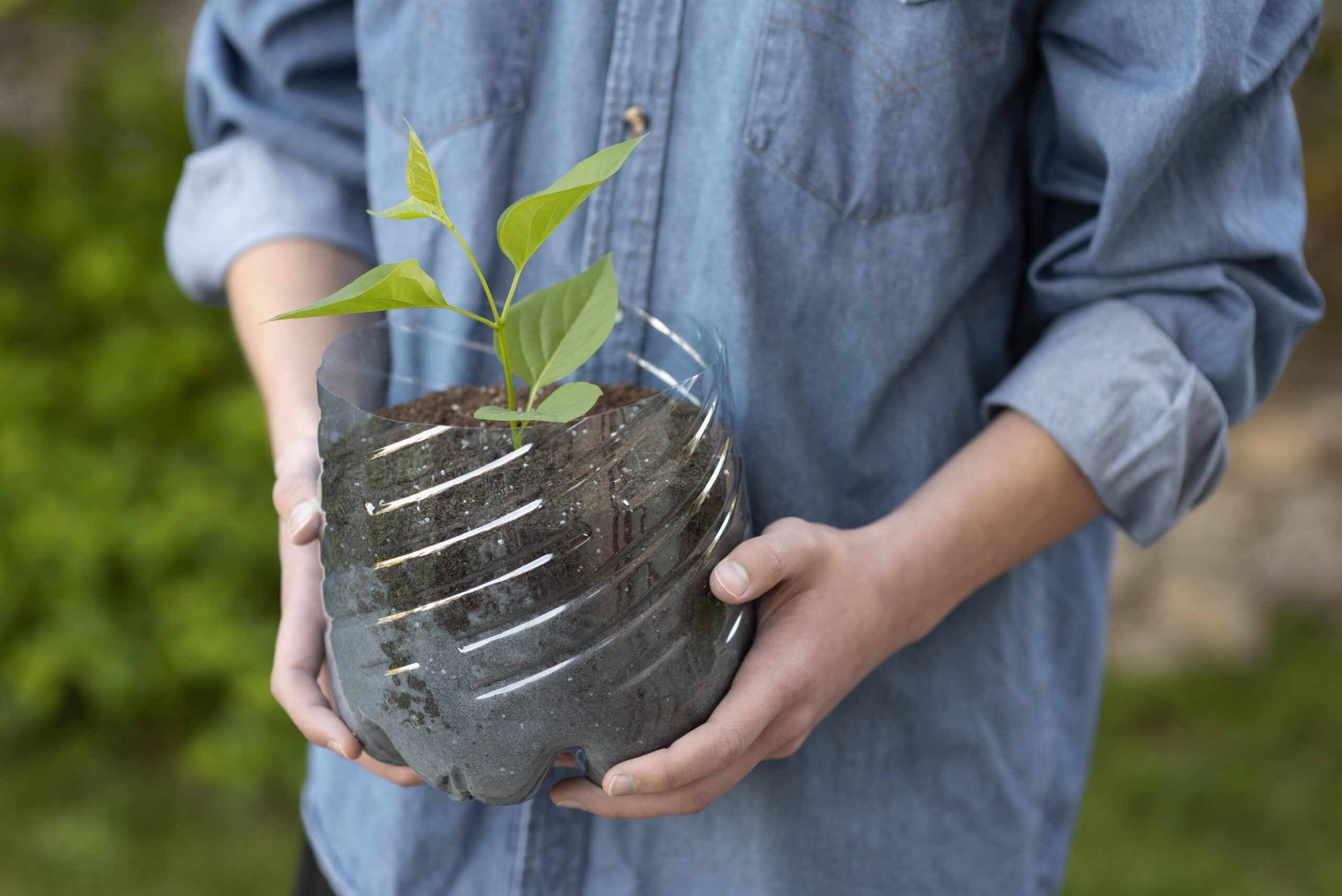Composting is a sustainable and eco-friendly waste management solution that can have a profound impact on the environment, reducing the burden on landfills and helping to enrich the soil. Whether you’re a gardening enthusiast or simply someone looking to reduce their carbon footprint, composting is a beginner-friendly practice that offers numerous benefits. In this guide, we’ll explore the many benefits of composting and provide you with the basics to get started on your composting journey.
Also read: Mindful Consumption: How to Make Informed and Sustainable Buying Choices
The Environmental Advantages of Composting
1. Reduces Landfill Waste
One of the most significant benefits of composting is its contribution to reducing landfill waste. Organic materials, such as food scraps and yard waste, make up a substantial portion of the waste sent to landfills. When organic matter decomposes in landfills, it generates methane, a potent greenhouse gas. Composting diverts this organic waste from landfills, thus reducing methane emissions and the overall volume of trash in landfills.
2. Enriches Soil
Compost is often referred to as “black gold” by gardeners because of its incredible ability to improve soil quality. When you add compost to your garden, it enhances soil structure, increases nutrient content, and improves water retention. This results in healthier, more productive plants and reduces the need for synthetic fertilizers, which can be harmful to the environment.
3. Promotes Biodiversity
Healthy soils with a rich organic content attract beneficial microorganisms and earthworms, contributing to a more biodiverse ecosystem. These soil organisms play a crucial role in maintaining soil health and the overall health of our planet.
4. Reduces Erosion
Compost can also help prevent soil erosion. By improving soil structure and water retention, compost reduces the risk of soil being washed away by rain, wind, or other environmental factors. This is particularly important in agricultural settings where erosion can lead to the loss of valuable topsoil.
The Practical Benefits of Composting
1. Cost Savings
Composting can save you money in the long run. By reducing the need for chemical fertilizers and soil conditioners, you can cut down on gardening expenses. Additionally, less waste means fewer trash bags and less money spent on waste removal services.
2. Easy to Get Started
Composting is a beginner-friendly endeavor. You don’t need a lot of space or equipment to start composting at home. All you need is a designated area for your compost pile or bin, some organic material, and a little time and effort. There are numerous resources and guides available to help you get started, and you can tailor your composting setup to suit your specific needs.
3. Reduced Carbon Footprint
By diverting organic waste from landfills and reducing the demand for synthetic fertilizers, composting can significantly reduce your carbon footprint. Organic matter in landfills produces methane, a greenhouse gas far more potent than carbon dioxide. Composting mitigates this environmental impact by converting organic waste into valuable, nutrient-rich compost.
Getting Started with Composting
Now that you’re aware of the myriad benefits of composting, here’s a brief overview of how to get started:
- Select a Composting Method: You can choose from various composting methods, including traditional compost piles, compost bins, or vermicomposting with worms. Select the one that best suits your space, needs, and preferences.
- Gather Organic Material: Collect kitchen scraps like fruit and vegetable peels, coffee grounds, and eggshells, as well as yard waste like leaves, grass clippings, and small branches. Avoid adding meat, dairy, or oily foods to your compost, as these can attract pests and slow down the composting process.
- Layer and Maintain: Add your organic material in layers, alternating between green (nitrogen-rich) and brown (carbon-rich) materials. Keep the pile or bin moist, but not too wet, and turn or aerate it regularly to encourage decomposition.
- Be Patient: Composting takes time. Depending on your method, it can take several months to a year for your compost to become rich and crumbly.
In conclusion, composting is a sustainable and beginner-friendly waste management solution that benefits the environment, saves you money, and reduces your carbon footprint. By diverting organic waste from landfills and enriching your soil, you can make a positive impact on the planet while enjoying the rewards of healthier plants and a more sustainable lifestyle. So why wait? Start your composting journey today and experience the numerous advantages it has to offer.



